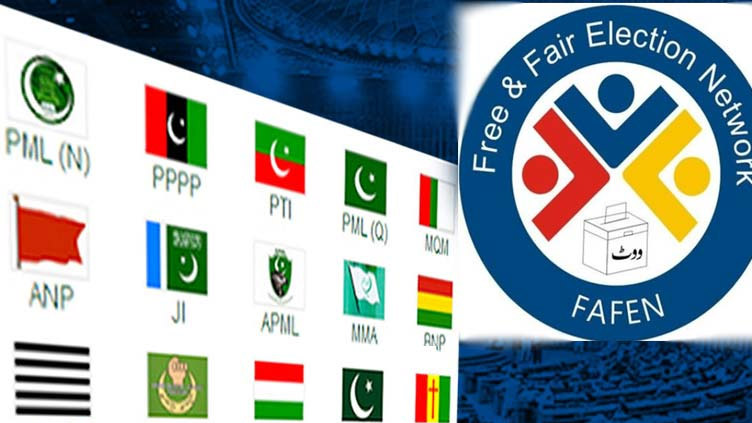FAFEN report highlights electoral representation gap in Pakistan

Pakistan
In 499 provincial constituencies, winners received less than 25pc voter backing
ISLAMABAD (Dunya News) - The Free and Fair Election Network (FAFEN) has released a report analysing Pakistan’s electoral outcomes from 2002 to 2024, revealing that election results have shown little improvement over the past two decades.
According to the report, national and provincial assemblies continue to be elected with the mandate of less than one-quarter of registered voters and half of the cast votes.
The data highlighted a persistent representation gap in Pakistan’s elections:
• In 2002, the National Assembly had the backing of 20% of registered voters and 47% of cast votes.
• In 2008, this increased slightly to 22% registered voters and 50% cast votes.
• The 2013, 2018, and 2024 assemblies represented 26%, 22%, and 21% of registered voters, respectively, while the percentage of cast votes stood at 48%, 43%, and 45%.
The report also revealed that in General Elections 2024, no candidate in any of the 265 constituencies secured a majority of registered voters' support. Additionally, in 202 constituencies, winning candidates had less than 25% support from registered voters.
• 63 constituencies saw successful candidates backed by 25% to 50% of registered voters.
• Only 69 constituencies had winners securing more than 50% of cast votes, while 196 constituencies had winners with less than half of the votes cast.
The report further disclosed that in provincial assemblies, only two constituencies had candidates securing more than 50% of registered voters' support, while in 499 provincial constituencies, winners received less than 25% voter backing.
FAFEN also criticised the First-Past-The-Post (FPTP) system, arguing that it exacerbated the representation crisis, as candidates can win without securing the majority's support.
The organisation urged Parliament to reconsider the FPTP system and introduce reforms to enhance voter participation and ensure more representative electoral outcomes.


